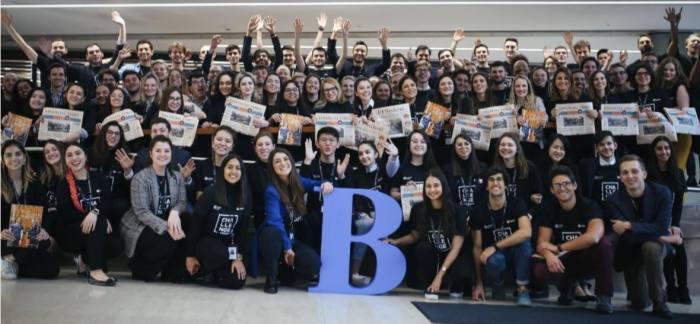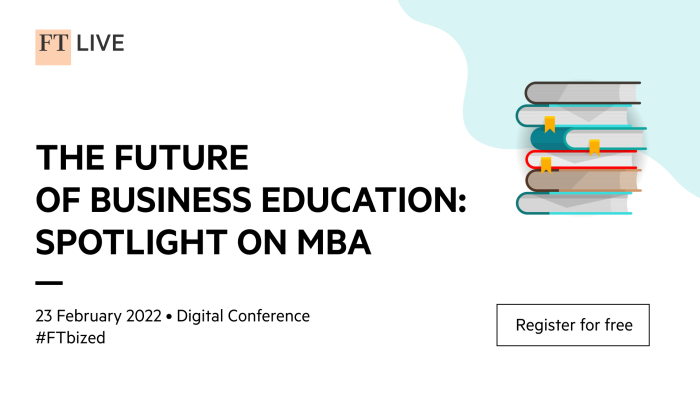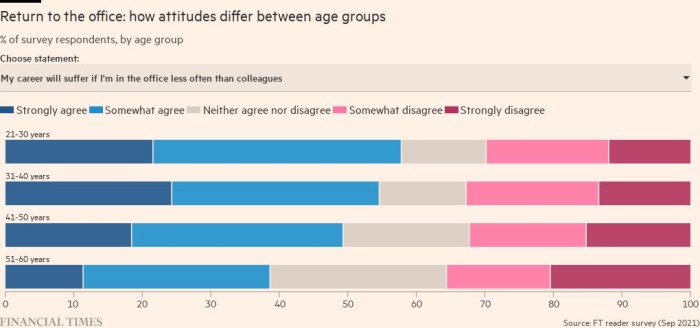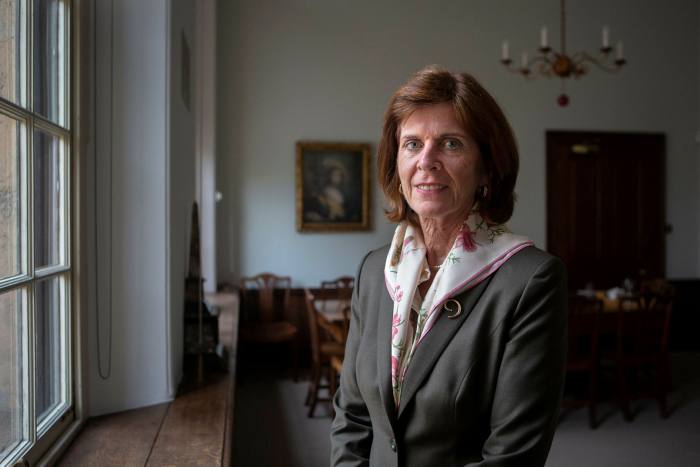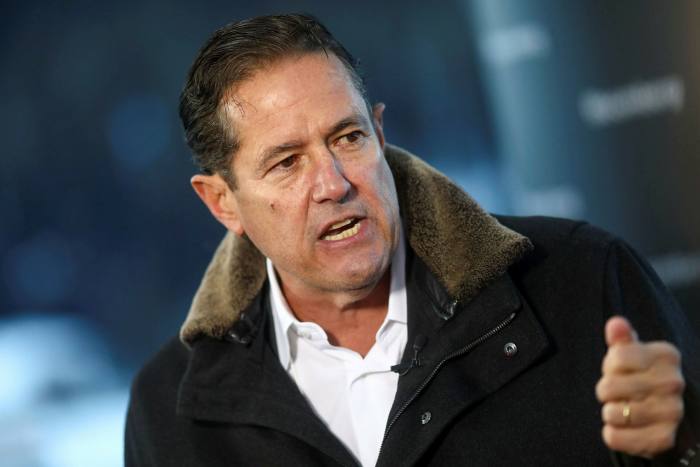Good afternoon from London. Innovative organisational habits are slow to catch on, but they can transform bloated bureaucracies. Do you agree? Also find out which EMBA schools are rated highly for their finance teaching.
Written and edited by Wai Kwen Chan and Andrew Jack.
Noticeboard
Take part in our “hybrid world” competition
Calling all entrepreneurial individuals to take part in a Financial Times competition “FTxBocconi Talent Challenge” on 3-7 Feb 2022. If you have solutions for living in a hybrid world covering work, health, entertainment and customer experience, then please apply by 24 Nov 2021 at: https://fttalent.ft.com/ftxbocconi2022.
Join us for the FT’s ‘Future of Business Education: Spotlight on MBA’
We will be holding a virtual event on Feb 23 Wednesday 2022 with FT Editorial and top business schools sharing insights about the FT MBA ranking, responsible business education, innovation and the future of the MBA in a post Covid-19 world. Register for free on: https://businesseducation.live.ft.com.
Books of the year
What is your favourite book or audiobook published in 2021? As part of FT Weekend’s annual Books of the Year guide, we are collecting your recommendations. Go to ft.com/readersbooks2021 to share your choice, plus a few sentences about why others should read it. We’ll publish a selection of the best responses on FT.com.
Business school professor advisers sought
We are interested in hearing from business schools and their professors willing to help as advisers, identifying relevant FT content that is useful in their teaching and research and helping find ways to share it. Get in touch at [email protected]. Many thanks to those who have already responded to our request.

Andrew Hill’s management challenge
What happened to the management “revolution”? In my column this week I’ve examined if anything has really changed in management over the past decade, given the high hopes of organisational evangelists such as Gary Hamel. As he told me, management tends to advance through a combination of “revolutionary goals and evolutionary steps”.
For my challenge this week, what do you think has been the most important change in how we run organisations in the past 10 years? Send your brief thoughts to [email protected].
Last week, I asked you how the metaverse might improve management. Kaylee Brown on Twitter (@wozbot1982) was sceptical: “Until we have AR [augmented reality] contact lenses or even actual wetware in our heads I don’t see the metaverse taking off…it’ll be like 3D TVs.” Basil Towers thinks the metaverse could “help leaders and managers understand and appreciate the people they need to support them” but points out that there is an existing real-life alternative: “For leaders and managers to get out, meet and give time to listening and responding to real people inside and outside their businesses. This,” he adds, sadly, “has never caught on.”
In further reading, a compelling look by Jen Wieczner of New York magazine, at the revolt of exhausted junior Wall Street analysts earlier this year and its consequences: extra perks and pay for many. Even so, that wasn’t enough for some. One Goldman Sachs junior, who ultimately quit the bank, says: “When I thought about it bigger-picture — How much difference does it really make in your life? — I decided that my happiness was worth more than a few hundred thousand extra dollars.”
Data line
Men still make up the majority of the student cohort on MBA and EMBA programmes, as well as business school faculty. However, the number of women is increasing over time — not only as students but also as members of faculty and school boards, write Sam Stephens and Leo Cremonezi.
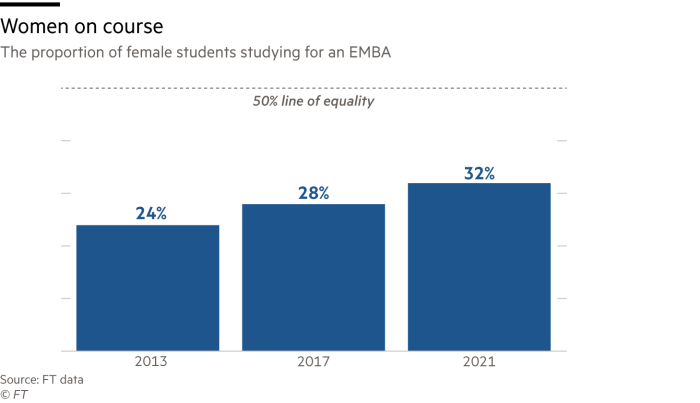
See full EMBA ranking and read further analysis.
Work and careers roundup from ft.com/work-careers
An MBA graduate is moving back to London and is unable to find a job after working overseas for two decades. Do you have any advice?
Return to the office: More than 1,000 readers shared their concerns and hopes on heading back to the workplace. Divisions, commutes, workloads — and bras — were some of the issues raised.
Neurodiversity gets a corporate champion in Charlotte Valeur, a former Institute of Directors chair diagnosed with autism in her 50s, who is launching a campaign for more inclusion.
Crisis management: University of Oxford’s vice-chancellor says ‘informality’ and ‘flexibility’ are key in leading an ancient university with its disputatious devolved colleges.
The Great Resignation: The idea we are all planning new careers obscures the fact that many of us are grateful for our working lives.
Find out why big companies are more likely than ever to maintain their dominant positions over plucky start-ups.
How good is your knowledge of the news?
Answer our 10 question quiz.
Top reads from business schools in the past week
Jes Staley, former Barclays chief, exchanged 1,200 emails with Epstein that included unexplained phrases Regulators flagged ‘snow white’ reference in messages between the former Barclays chief executive and the convicted sex offender.
GE to split into healthcare, energy and aviation companies The move marks the final step in the unwinding of a sprawling conglomerate created by Jack Welch at the end of the last century.
Electric vehicle start-up Rivian soars on stock market debut A capitalisation of more than $100bn for the Amazon-backed carmaker surpasses stalwarts GM and Ford.
Back issues
To view previous newsletters, go to: ft.com/bschool.
If this newsletter was forwarded to you, then please sign up for the FT Business School Briefing.
Thank you for reading. Please send your recommendations and feedback to [email protected].
Recommended newsletters for you
Unhedged — Robert Armstrong dissects the most important market trends and discusses how Wall Street’s best minds respond to them. Sign up here.
FT Schools Digest — Perfect for teachers and students. Sign up here.

